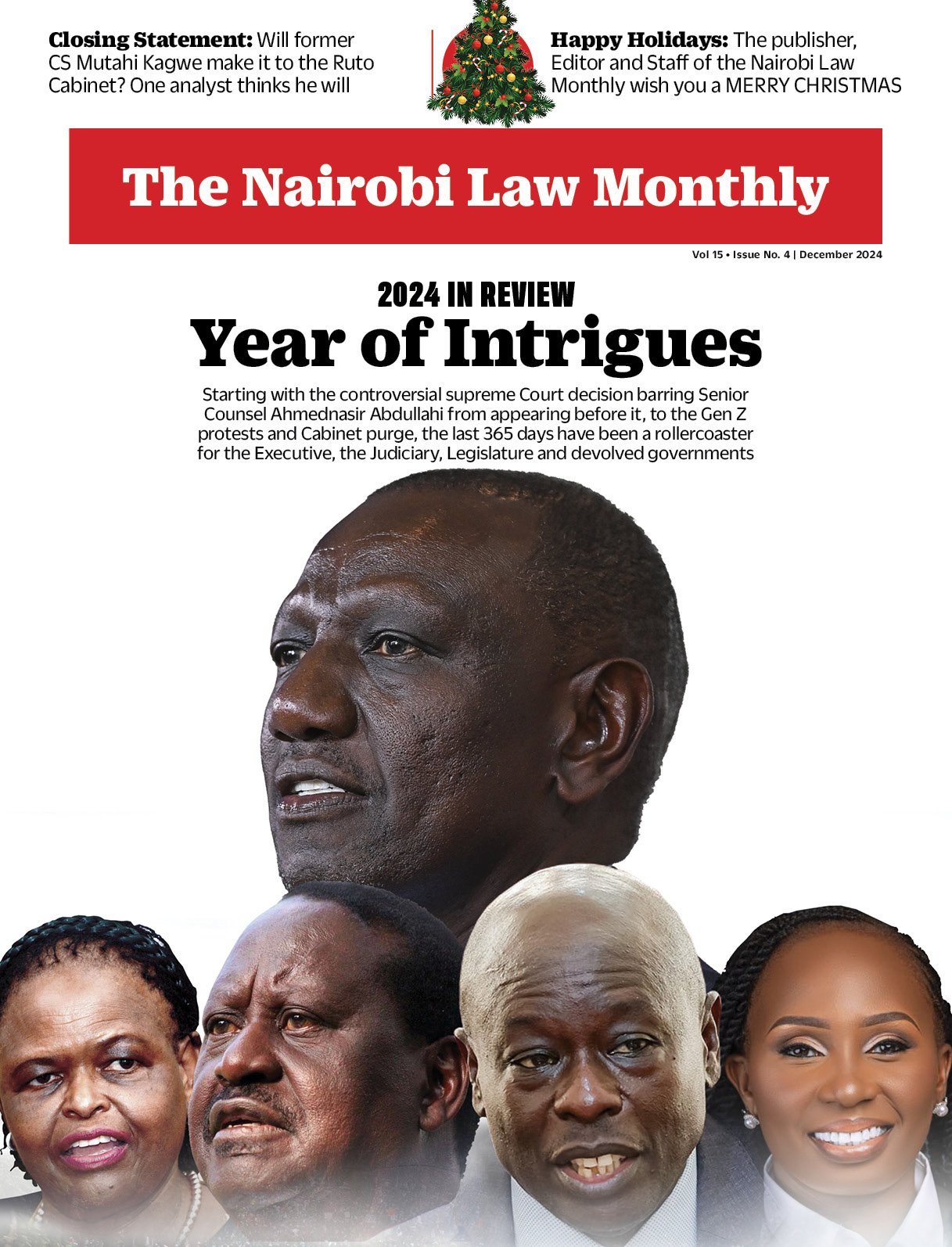Professor John Harbeson
In my monthly essays for the Nairobi Law Monthly, I try to focus single-mindedly on subjects that have meaning for sub-Saharan Africa in general, and Kenya and Eastern Africa in particular. But as I do so, always and increasingly in the back of my mind, a quiet but persistent voice asks, “doesn’t all this apply to the US as well?” The answer is invariably “yes”.
This month, as I write, by contrast, the domestic terrorist assault on the US Capitol Building in Washington is front and center in my mind while, at the same time, I wonder how African friends and colleagues, based on their own experiences of perhaps analogous cataclysms, may be reflecting on this American experience.
As an academic, I struggle to find a philosophical or theoretical frame of reference that may be useful in understanding and explaining domestic terrorist events like this one in a supposedly stable state that may also resonate at least in part with perhaps comparable African experience.
From a more comparative perspective, moreover, the consequences of democratic decay, even in presumably more stable states, are potentially more serious even than submission to authoritarian rule
For example, what, if anything about this US debacle might connect with Kenya’s electoral meltdown in 2007-8 that put its democracy, indeed the Kenya state itself, at risk? Or consider Mali, for 20 years a supposedly shining democratic star in the eyes of Freedom House, while now evident factors leading to its sudden collapse in 2012 remained unrecognized and undiagnosed for so long? Any similarity to the emerging sense in the US that what happened at our Capitol Building has been long in the making and inadequately prepared for?
In search of an applicable frame of reference, a 2018 book by two academic colleagues came to mind, written in part with worry about Trump’s potential capacity to undermine democracy. Entitled ‘How Democracies Die’, the book seems to center more on measures needed for the restoration of democratic norms throughout society than upon the factors causing them to shrink or recede to begin with.
The book counsels learning from the experiences of other countries and upholding examples of democratic practice at its best, such as diminishing inequality, embracing diversity and eschewing demagoguery in all its forms. The authors seem to say less about what causes those ideals to be so difficult to realize, and so challenging for many to sustain. From a more comparative perspective, moreover, the consequences of democratic decay, even in presumably more stable states, are potentially more serious even than submission to authoritarian rule: the looming specter of state fragility and perhaps failure omnipresent in much of sub-Saharan Africa and elsewhere.
It is as though the race to satisfy needs at all levels has collectively become so fast, that once reasonably accomplished “runners” have been left behind without available apparent means of catching up. It is the fear of falling, or having fallen, behind that I think helps explain domestic terrorism.
In my search for an explanatory framework for this domestic terrorism, I have found it helpful to consider the hierarchy of needs framework of the great 20th Century psychologist Abraham Maslow (1908-1970). Maslow hypothesized that human needs are basically hierarchically organized. At the base of what he portrayed as a pyramid of needs lie those most fundamental ones: food, water, shelter, sleep, clothing, and reproduction. On top of those, the next level are the needs of personal security, employment, resources, health and property. Next up the pyramid the needs for affection, belonging, friendship, family and connection. Next, near the top of the pyramid are needs for esteem: respect, status, freedom, (and arguably democracy more generally) recognition, and strength. Maslow characterized all these as “deficiency” needs, meaning that satisfaction of these needs is a prerequisite for the ultimate need: self-actualization in the form of cognitive, aesthetic and transcendent experience, the peaks of human growth.
Maslow recognized that it was not necessary to satisfy “lower” needs 100% before realizing some aspects of the “higher” needs. His emphasis was less on diagnosing aberrant, even self-destructive behavior than upon sketching a pathway to ultimate personal happiness and contentment. Unsurprisingly, he adjusted his theory in response to critiques even as it has remained influential. One valid critique is that the need to include the importance of acting on a motivation to contribute to society at all levels of his pyramid, not least civic order.
I draw on Maslow because my hunch is that fear of losing or being unable to attain the most is a fundamental driver of the kind of domestic terrorism that just exploded on the day of Epiphany in the US. The difficulty and complexity of pathways to satisfying needs has escalated so rapidly that once acceptable levels of need satisfaction have seemed to become almost unattainable. It is as though the race to satisfy needs at all levels has collectively become so fast, that once reasonably accomplished “runners” have been left behind without available apparent means of catching up.
It is the fear of falling, or having fallen, behind that I think helps explain domestic terrorism. More generally, it may be not just the well documented elements of pervasive state fragility but fear of experiencing them and their consequences that appears to motivate domestic terrorism.
The author is Professor of Political Science Emeritus, and a professorial lecturer for the African Studies Program at Johns Hopkins University



